
Culture
16:42, 24-Apr-2018
“Swan guard" devoted to protecting swans for over 40 years
CGTN
03:45
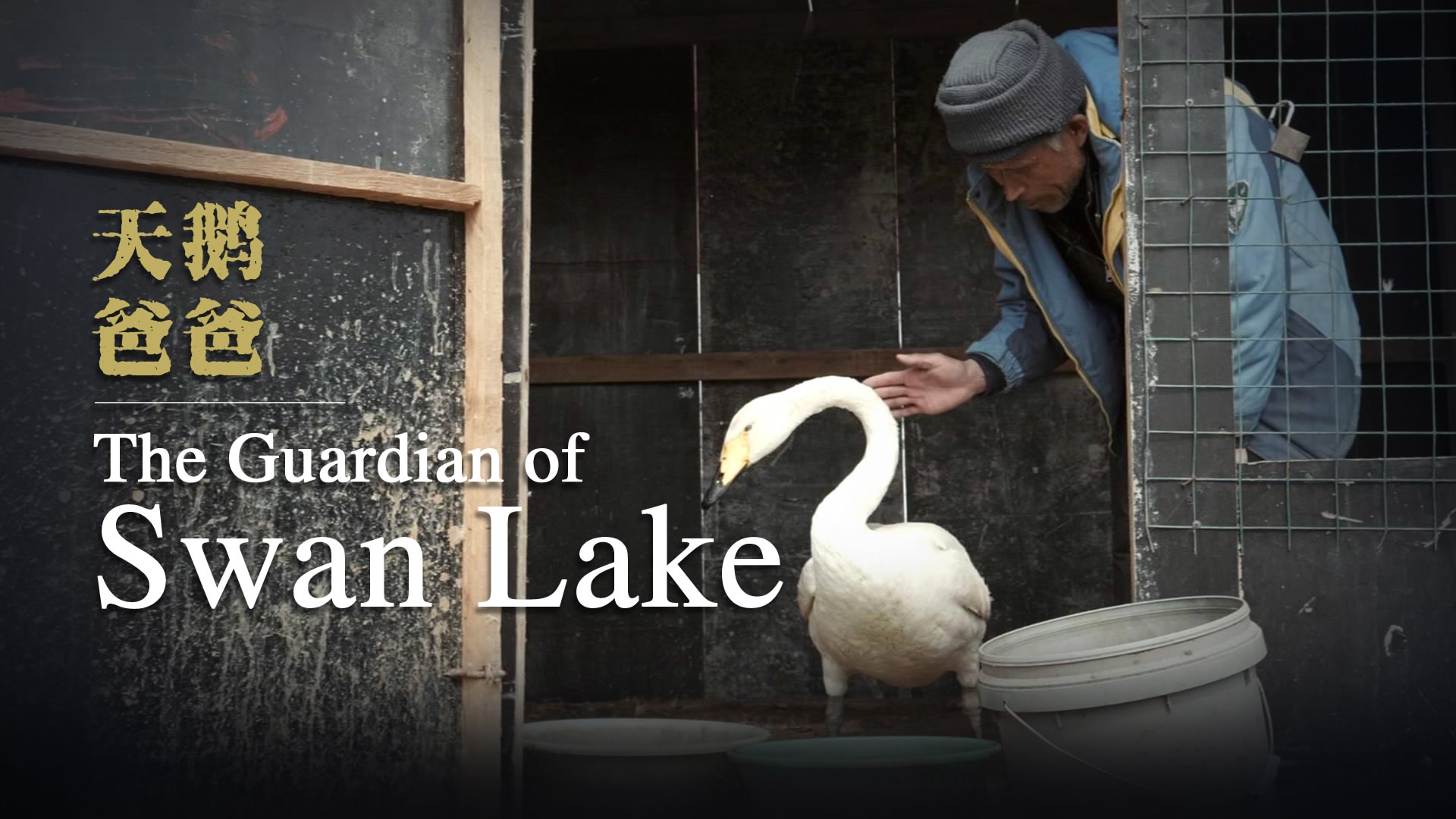

CGTN
CGTN
This week is “Bird-Loving Week” in China. In 1981, to promote the protection of birds and maintain the balance of the eco-system, the State Council of China authorized the celebration of “Bird-Loving Week” between April and May. People hold many types of popular science activities in order to learn about the creatures and their protection.
"All beings are created equal. The swan's life is of the same value as that of a human." Says Yuan Xueshun, founder of the civil organization "Weihai Whooper Swan Protection Association", and a determined protector of swans.
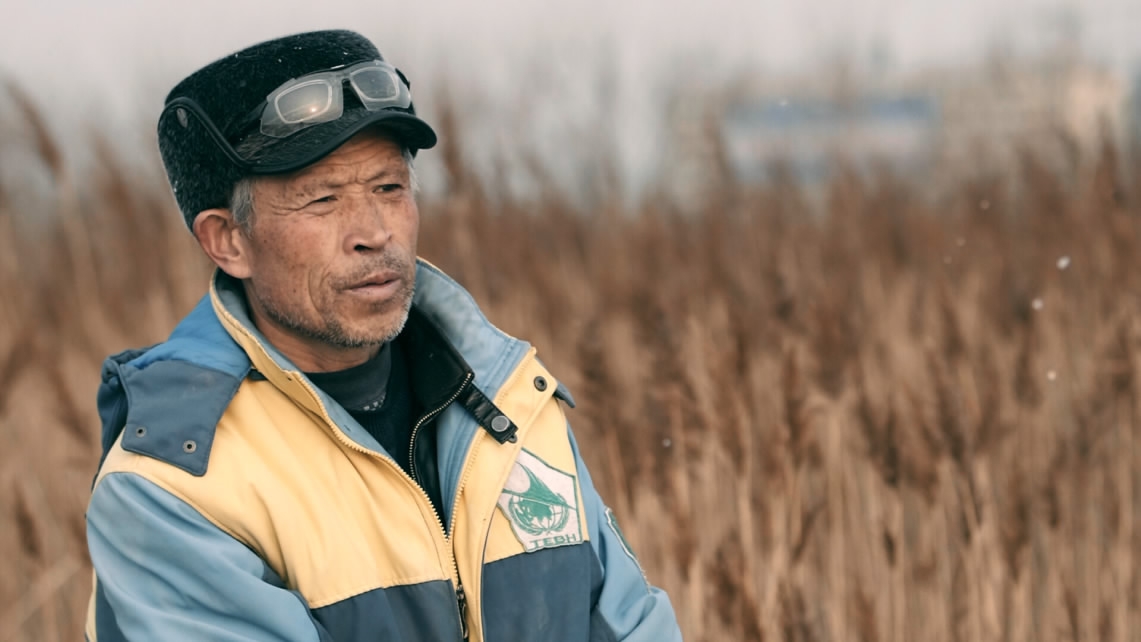
Yuan Xueshun /CGTN Photo
Yuan Xueshun /CGTN Photo
Located in the east coast of Shandong Peninsula, the area where he lives is called "Rongcheng Swan Lake", or "Moon Lake". From November to the next April, nearly 3000 whooper swans would migrate here from Russia, Inner Mongolia Autonomous Region, the Xinjiang Uygur Autonomous Region and the Sanjiang Plain, etc. Swans that head for the south of Yangtze River also stop here to replenish. They make quite a spectacle on the lake.
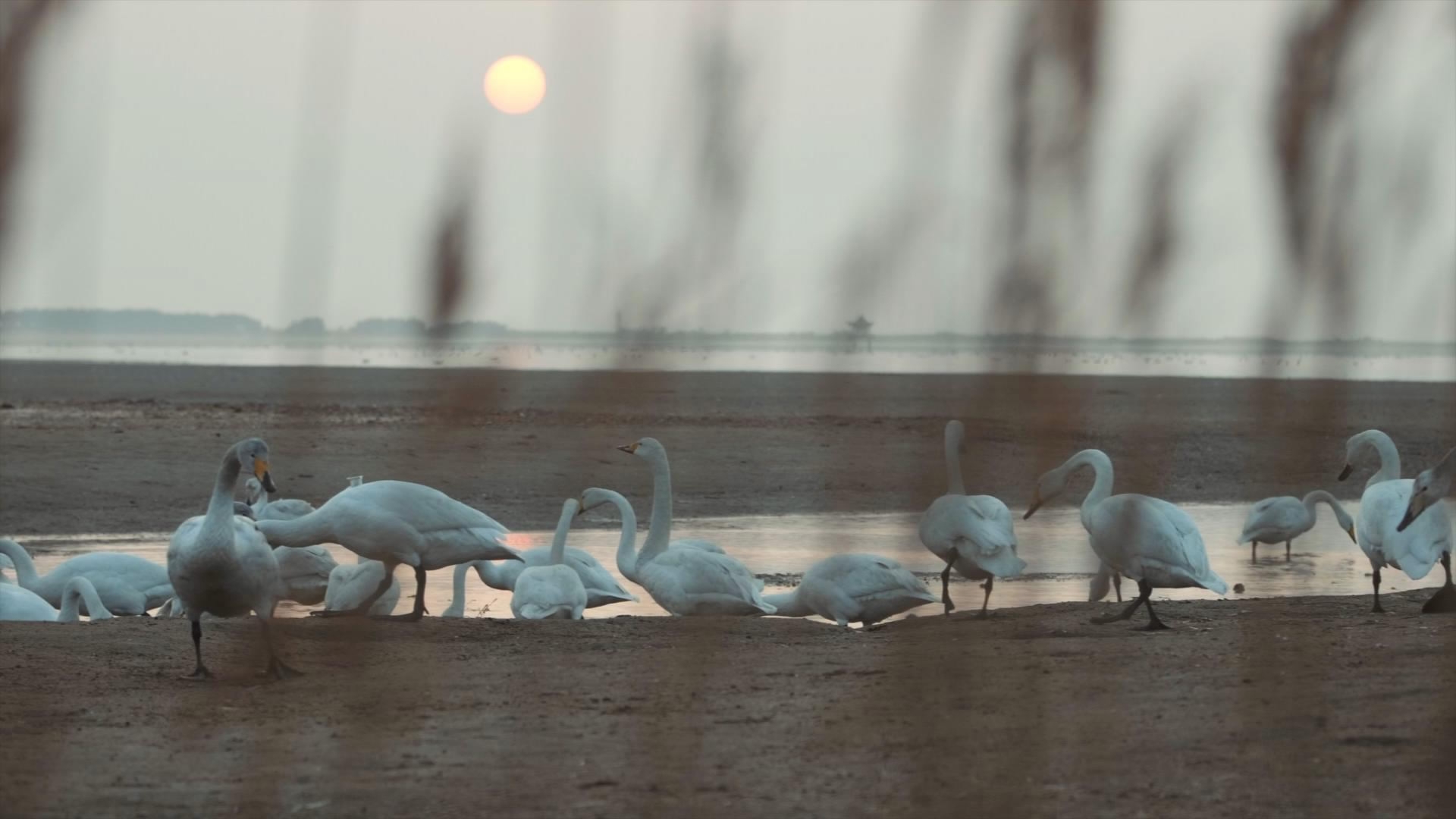
Rongcheng Swan Lake on the east coast of Shandong Peninsula. /CGTN Photo
Rongcheng Swan Lake on the east coast of Shandong Peninsula. /CGTN Photo
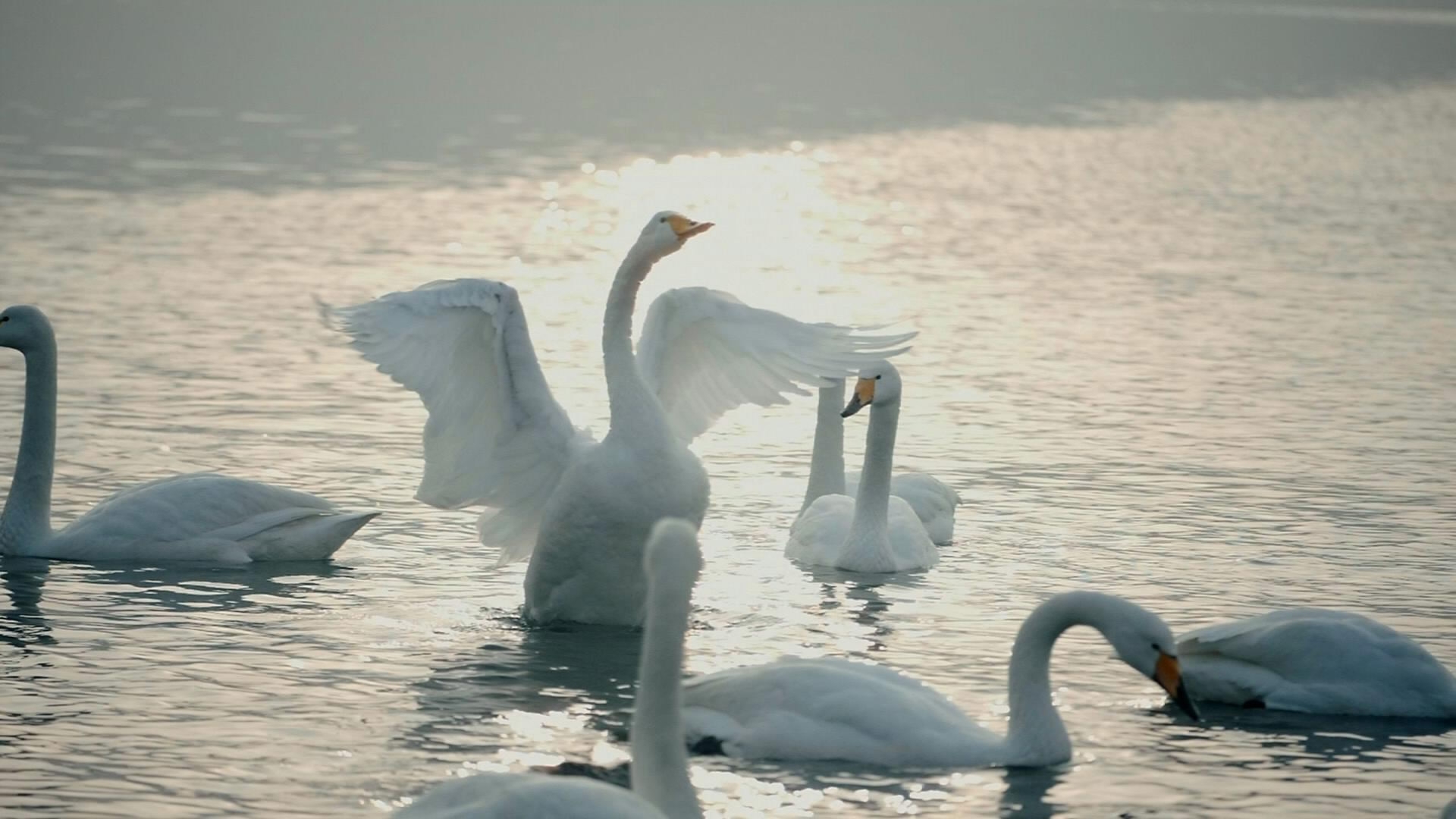
/CGTN Photo
/CGTN Photo
Inspired by a retired teacher named Li Mingwei, Yuan started to protect the birds voluntarily since 1975. After 40 years living with these white creatures, Yuan, who used to be an ordinary worker, now knows more about the whooper swans than experts in most universities. He easily can tell the subspecies apart, something that is quite hard for other people.
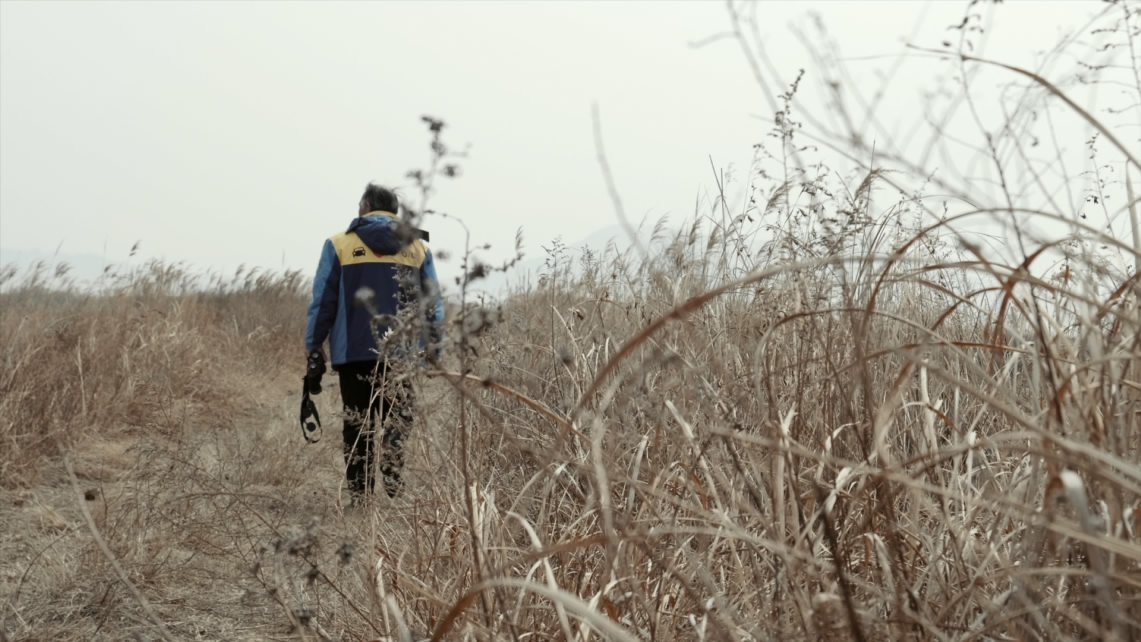
Yuan looking for swans. /CGTN Photo
Yuan looking for swans. /CGTN Photo
One day in 1985, Yuan noticed during an observation, a swan abnormally left its flock. It turned out that it had become stuck in a fishing net and had broken its wings. He rushed home to fetch the cutting tools, and returned only to find it dead in the reeds. Yuan believed it had committed suicide when it realized its body couldn't be cured.
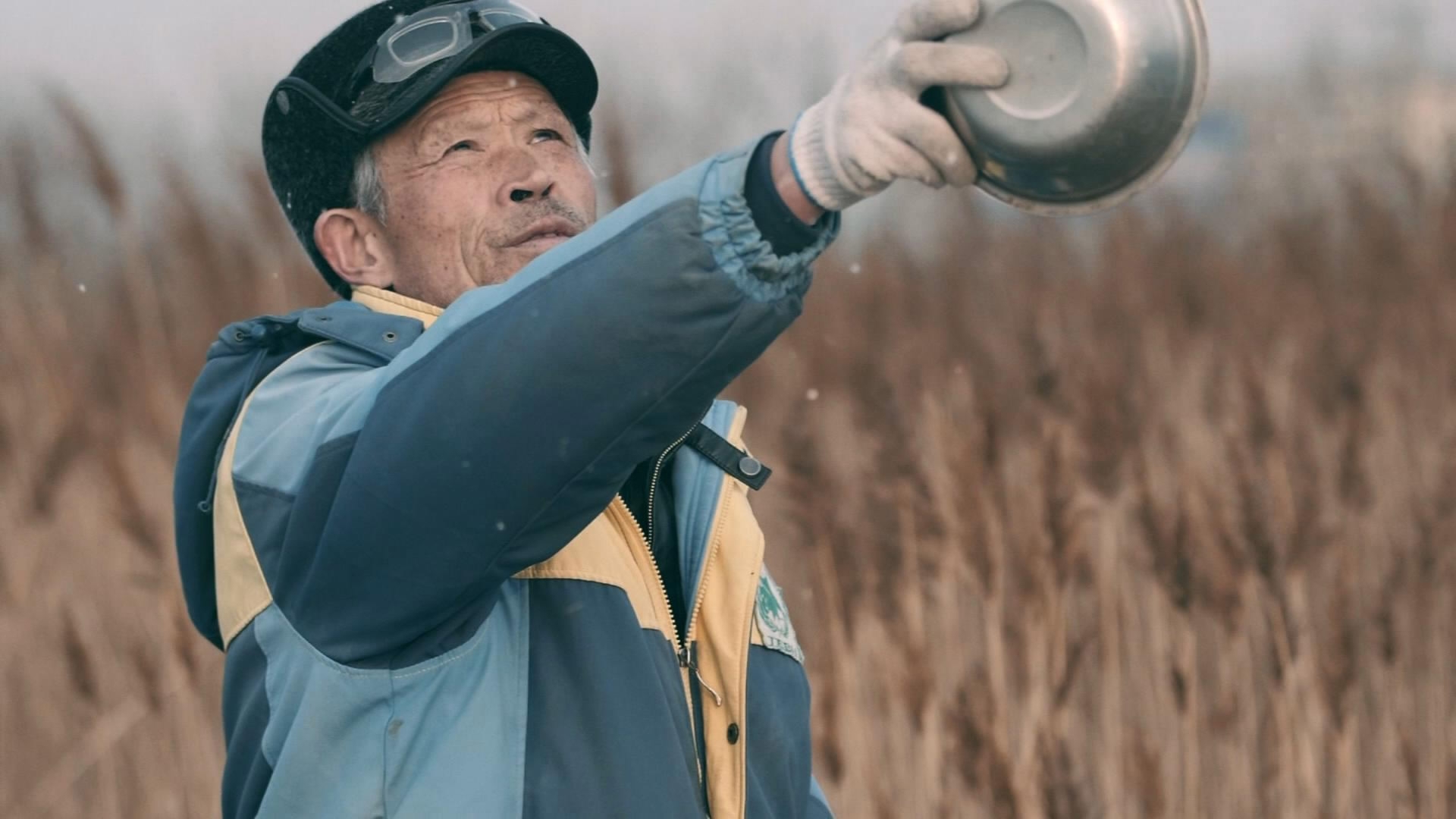
Yuan feeding the swans. /CGTN Photo
Yuan feeding the swans. /CGTN Photo
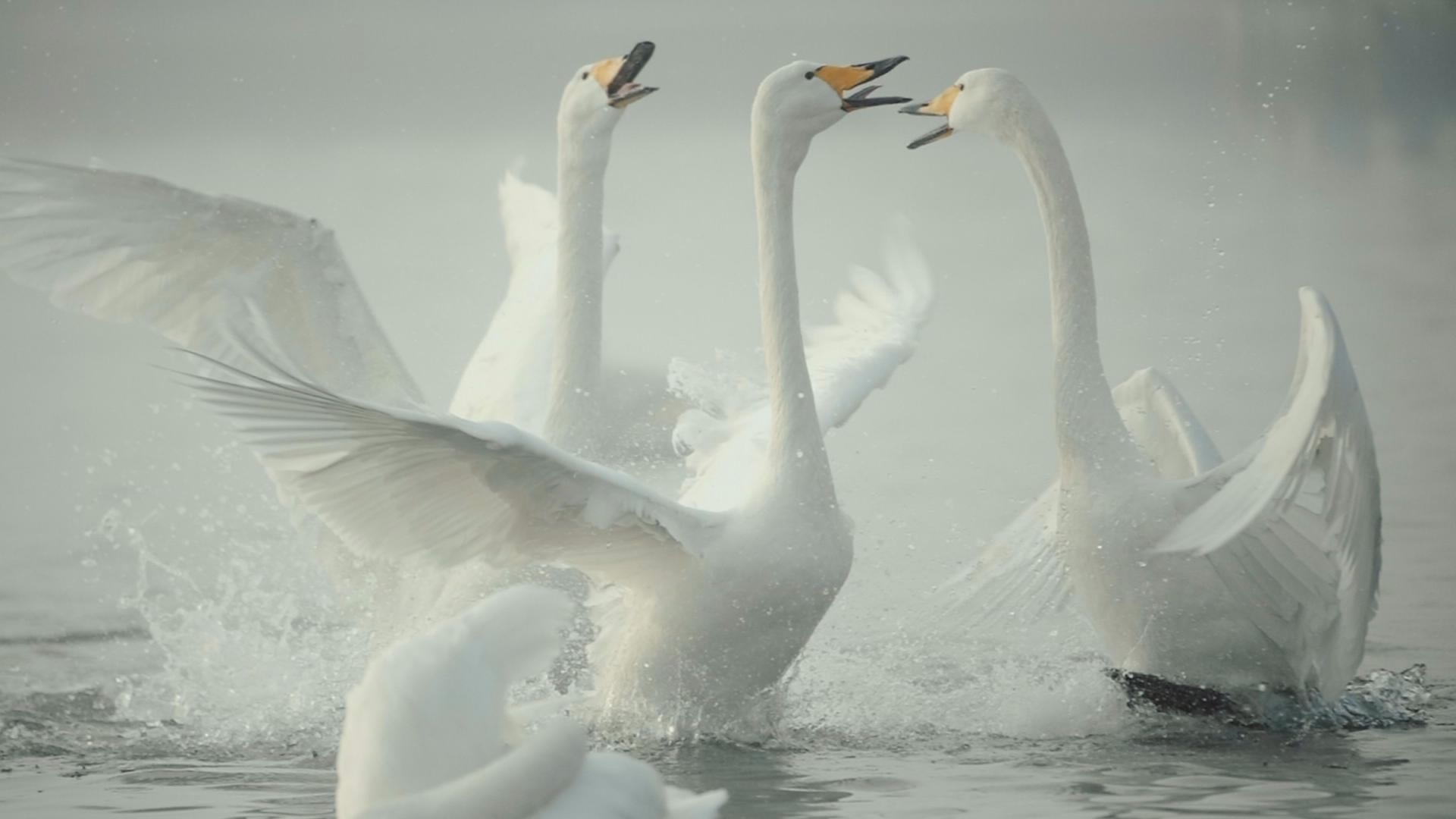
/CGTN Photo
/CGTN Photo
"Had I got better tools and more time, perhaps it wouldn't have died." Yuan still remembers the scene after all these years. He then decided to establish a home-run recovery center for whooper swans, helping birds that become wounded or too weak to move. For swans in serious conditions, the family keep them at home. Some have been living with them for almost 8 years.
Yuan's daily job is to patrol the lake and to feed the swans. "There are three essential feeding periods." He explains. "The first one is when they arrive, they could be exhausted from migrating. The second is during the icebound season when food becomes scarce. The third is when they are about to go, they need to store energy to leave.”
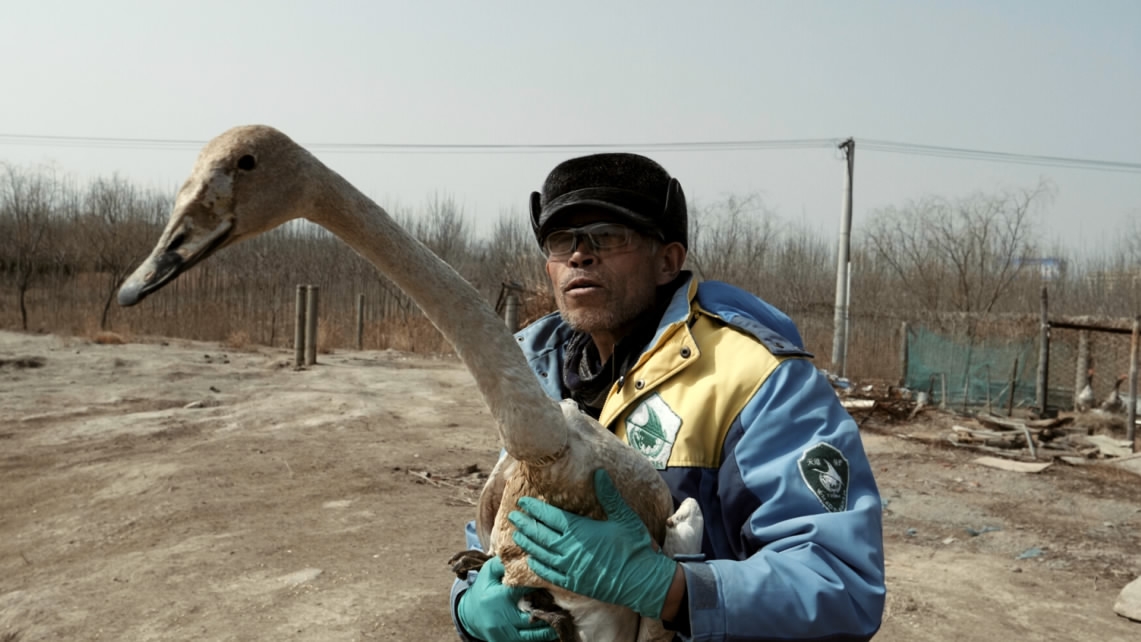
/CGTN Photo
/CGTN Photo
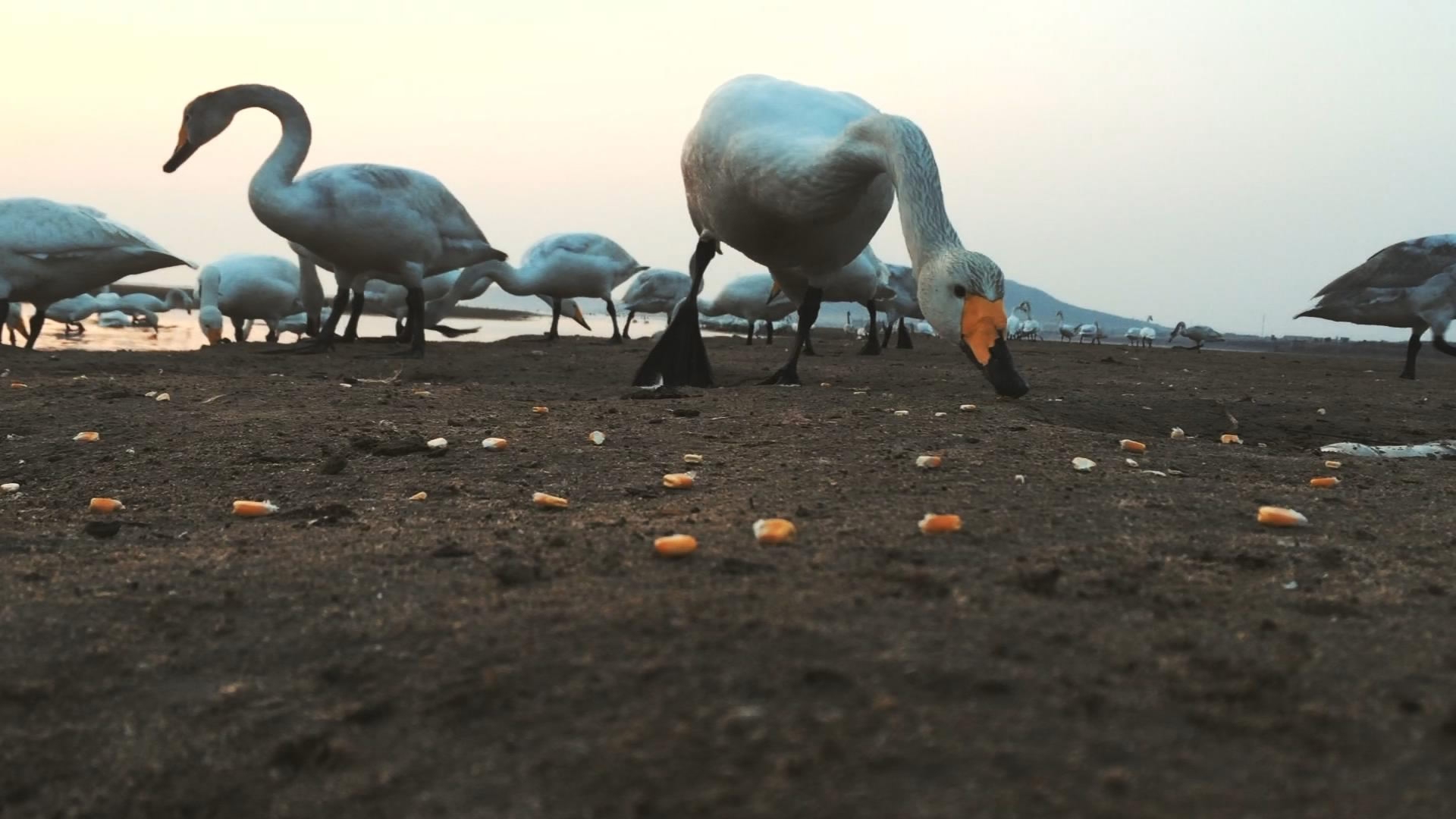
/CGTN Photo
/CGTN Photo
A full-grown swan eats 6 meals a day, consuming about 4 kilograms of seaweed, fish and shrimps. In order to help the weak ones while maintaining their foraging ability, Yuan feeds them 3 times a day by spreading the food in a wide area. The job requires both skill and strength.
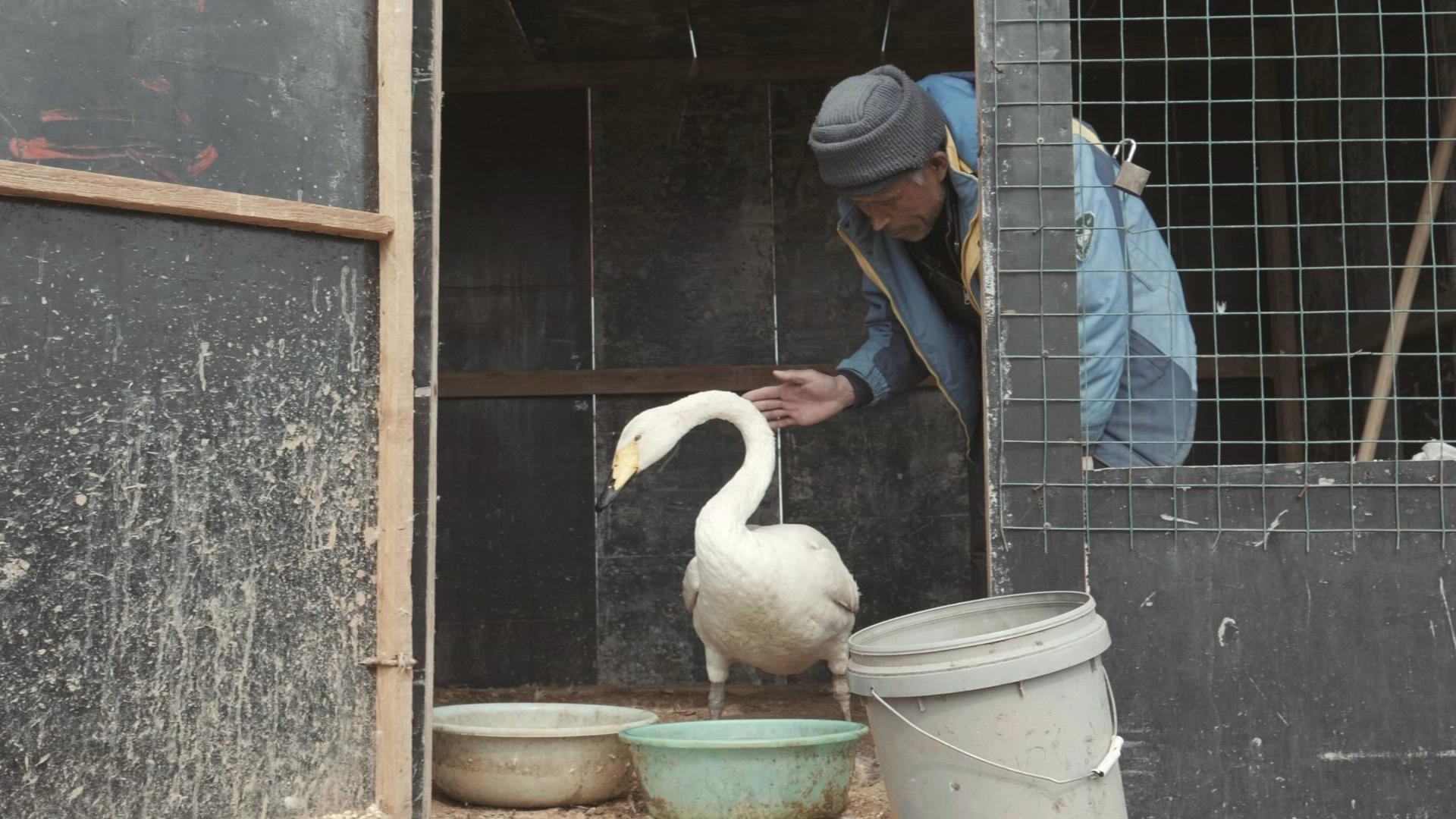
/CGTN Photo
/CGTN Photo
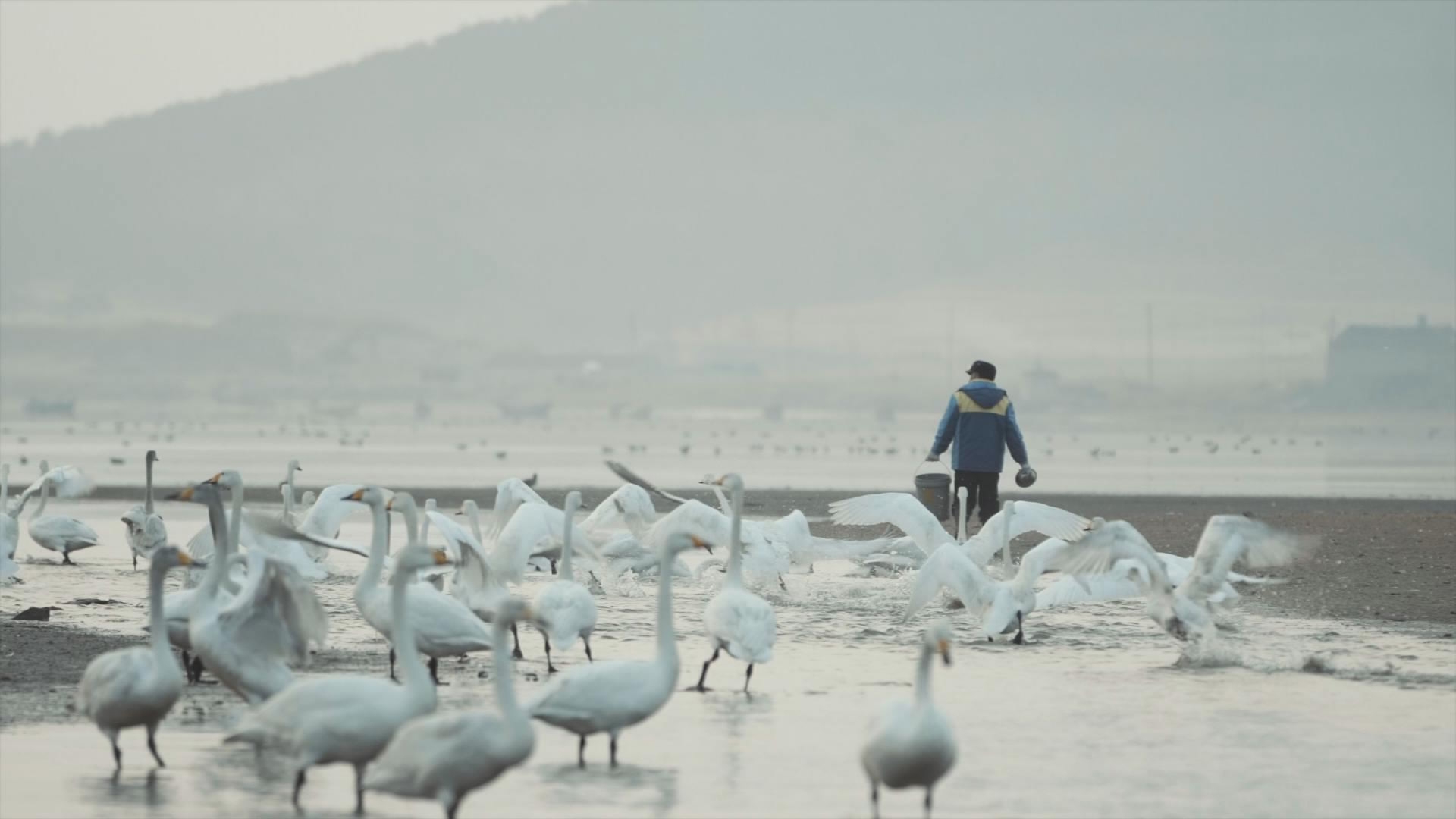
/CGTN Photo
/CGTN Photo
The swans eat 20 tons of food per year. At first, it all came from Yuan's family, who could for a time hardly make ends meet. After the establishment of the association, more and more people came to help by donating food and money.

In 2003, Yuan founded the Weihai Whooper Swan Conservation Society. /CGTN Photo
In 2003, Yuan founded the Weihai Whooper Swan Conservation Society. /CGTN Photo
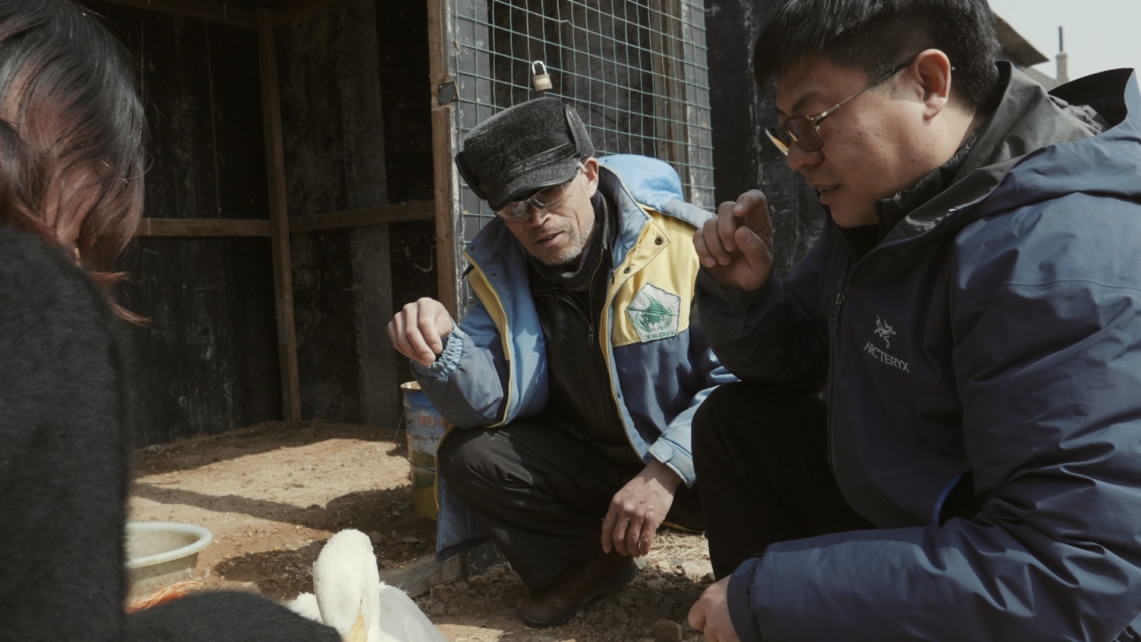
Yuan and other members of the Society. /CGTN Photo
Yuan and other members of the Society. /CGTN Photo
Although Yuan has saved many migrating swans, some people question his intervention against the law of nature. In this regard, Yuan has his own understanding about the relationship between nature and human beings. He believes that: "Saving the swans is in fact saving ourselves. The nature is being destroyed because our minds are not in the right place.”
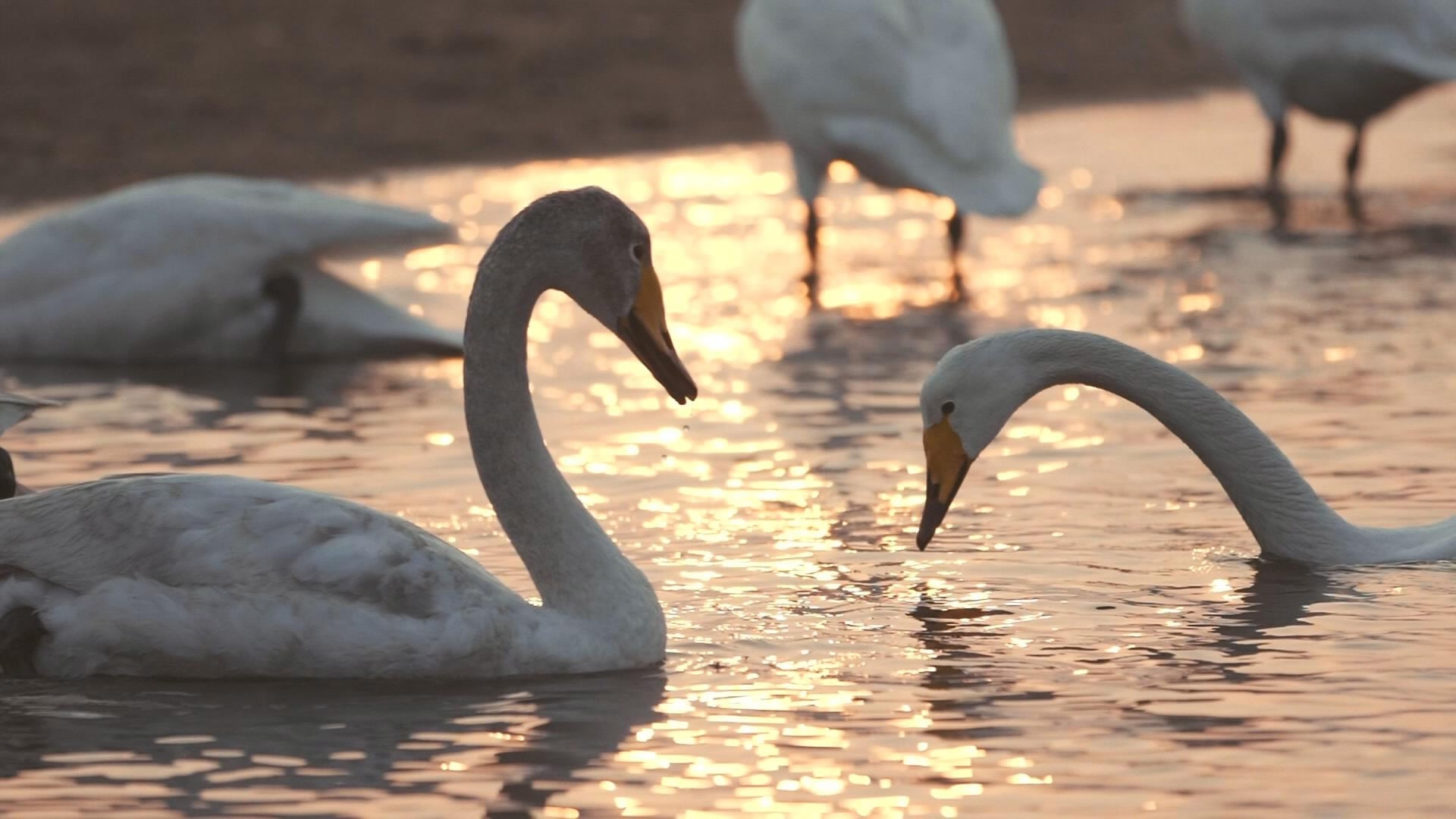
/CGTN Photo
/CGTN Photo

/CGTN Photo
/CGTN Photo
In reality, the conservation of swans in Rongcheng city is far from satisfying. There used to be 3 lake areas, now only 1 lake area remains. The nearby buildings and aquaculture farms are threats to the habitat. The number of swans had once declined from the 6000 to just 1000. In recent years, it climbed back to about 3000.
To promote the protection of the swans, Yuan gives lectures at universities and trains volunteers.

/CGTN Photo
/CGTN Photo
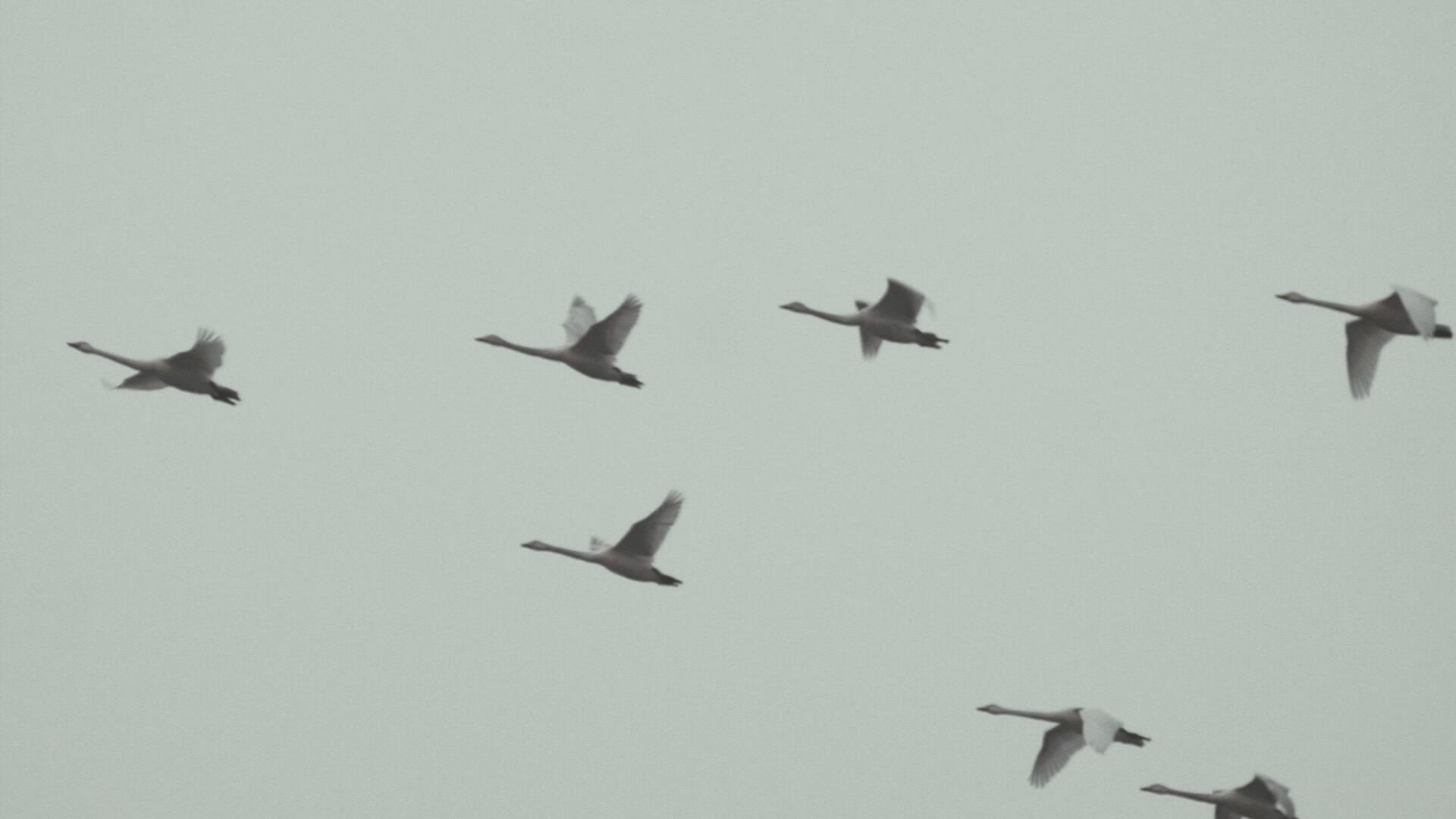
/CGTN Photo
/CGTN Photo
"Swans are sentient beings, too. They are in the circle of life. Protecting them is part of our fate." Yuan is planning to better protect the wetland, so that "the beautiful whopper swans can be lifetime friends with human beings.”

The story is one in The 1.3 Billion series exploring the diverse lives that make up China.
The story is one in The 1.3 Billion series exploring the diverse lives that make up China.

SITEMAP
Copyright © 2018 CGTN. Beijing ICP prepared NO.16065310-3
Copyright © 2018 CGTN. Beijing ICP prepared NO.16065310-3